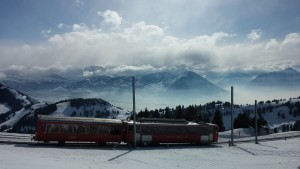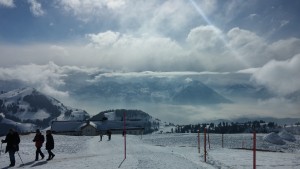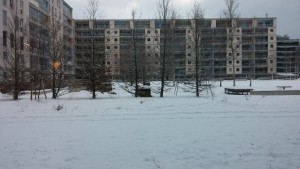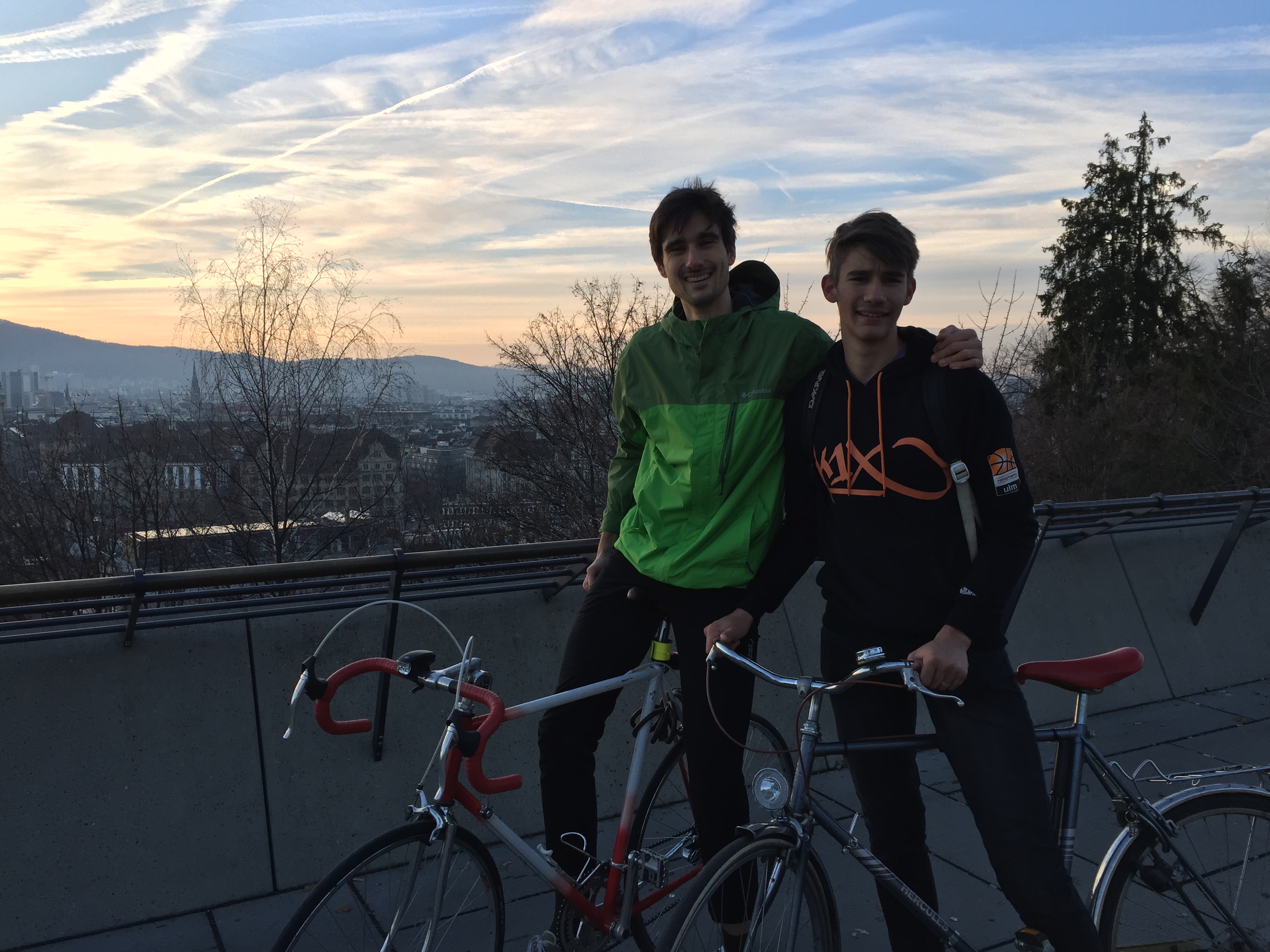Updated: 11 May 2016
Having only been to Europe once before and five years prior, in times lacking economic and political tensions, I was a little apprehensive to travel to a continent I had heard and read much about but clearly lacked practical experience in. I remember the first moments, starting out from the bulkhead windows, seeing the snow-capped Alps, frozen runway and subsequently the express tram into the heart of Zürich airport as critical in falling in love with this “small” European city.

From the very beginning it was evident that I would be tested by the elements. If I could change anything about my list of preparations, it would definitely be the inclusion of some anti-slip soled shoes and a trusty set of gloves. Transportation quickly became a game of timing; minimizing the time spent outside waiting for trams and busses by obsessively navigating through the wondrous amount of information made public by the Zürcher Verkehrsverbund (ZVV). As a student under 25 years of age a monthly ticket for the bus and tram system will set you back a reasonable CHF 61.- , a necessary expense for those wishing to avoid hypothermia and unwanted amputation of frozen limbs. In other words this is quite highly recommended.

At first the student accommodation at Cäsar-Ritz-Strasse 1-7 was a literal ghost town. The exchange student population coming in from other European countries having chosen to spend the last remaining days at home or travelling abroad. This quickly changed as the daily influx of students increased and the overwhelming task of remembering what appears to be thousands of new names became a binding constraint. The facilities here are of outstanding quality and much of my time has been spent experiencing and experimenting with foreign cuisine in the kitchen, lounging on the balcony, honing my table tennis and enjoying the natural surroundings (My particular accommodation is situated near the edge of Zürich, right on the border between rural farmland and modern construction. This makes my daily commute a tad over thirty-five minutes but in exchange allows me to enjoy running through the Katzensee and picnics and swimming in the summer).

Quickly approaching the agreed upon word limit and having spoken naught of academics I believe this to be the perfect point for such a short discussion. There are two camps here in Zürich, either you’re from the University or from the ETH. I have the honor of being from both having chosen subjects spanning across the two de jure split institutions. Classes have a typical Swiss structure, taking into account several variables and featuring breaks every 45 minutes to rest weary minds and chat to all the new and interesting class mates you’ll be surrounded by. The online learning platforms offer a bit of a learning curve but are valuable once mastered. All module bookings are handled through this platform, with a few exceptions (language courses and courses with special permission requirements).
In conclusion, Zürich is a fascinating, multicultural and expensive city. Expect to travel cross-border for groceries, make an adventure out of everyday tasks and meet a fantastic set of individuals that are drawn to this place for it’s prestige and beauty.
Return to Stellenbosch: A story left unfinished.
My time abroad has brought many lessons, one of which (and an important one, if I may add) is: expect the unexpected. This is true not only with respect to specific situations, but also, and not limited to, individuals, places and of course, the weather. As I sit amongst the rainy streets of London reflecting on my past, and on-going journey abroad I feel a minor onset of home-sickness.
In answering the quintessential topics, proposed as the foundation of this short article, I find it a little difficult to comply with the set structure. As a result I will focus primarily on the following; how has my trip abroad influenced my future plans, especially with respect to going abroad in the future.
In a way my trip abroad has completely redefined my plans for the future. I have been given a unique opportunity to continue to develop myself in the new and unfamiliar setting of Europe. I have yet to return home but I think that when I do, I will have an enormous number of experiences to share. Not only with my colleagues, family and friends, but also hopefully with other individuals wishing to undertake a similar path.
Perhaps as some advanced practice I can broadly share one or two of these experiences with the reader of this brief. First, I would like to share my experience of the international environment one is exposed to when leaving the comfort zone of sunny South Africa. This particular experience may not be homogenous over all such trips abroad, as the circumstances are bound to change under each occasion. That being said, I was in the fortunate position to be placed in an international setting unlike any other. Spanning a total of two semester I lived, travelled with and befriended the most excellent set of individuals one could possibly have asked for. These moments have taught me tolerance and exposed me to the true variety of cultures that exist out there in the wide yonder, existing outside of ones comfort zone. The format of this report does not allow for a full exposition, but this particular factor has left such a profound imprint on me that I thought it worth a notable mention.
The second experience is that of endless opportunities for knowledge gathering and growth. European culture, has for some time, undertaken a different approach to education and skills development. Students are encouraged to engage with industry and question societal norms. Firms and business are interactive with students, even outside specialty professions such as engineering and finance, a feature that I felt was lacking in my student experience in South Africa. For example, in Switzerland and Zürich in particular, intern positions are highly coveted entry points into a large assortment of international firms, even from the undergraduate level. Importantly, this lifts the veil behind which life outside of University studies hides. An opportunity for students to test their skills and question their compatibility with their chosen profession, earlier rather than later.
Having condensed as much as I possible into a single-page report, I believe that I have not yet covered a fraction of the wonders that exist for a young student travelling abroad. Nevertheless I think that I scratched the surface with respect to some of the important lessons that I would like to take home with me from this adventure.

